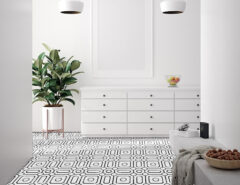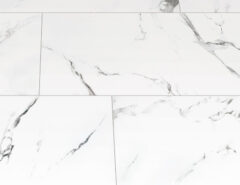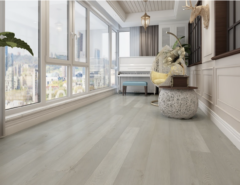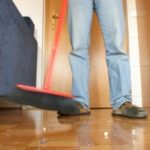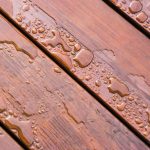When you’re getting new floors installed in your home, you may be able to purchase the necessary materials beforehand to save on cost. If you do, you’ll likely need a place to store them before the installation takes place.
As you might imagine, one of the first places that comes to mind for safe storage is the garage. Is the garage a safe place to store laminate and vinyl flooring?
Challenges of Garage Storage
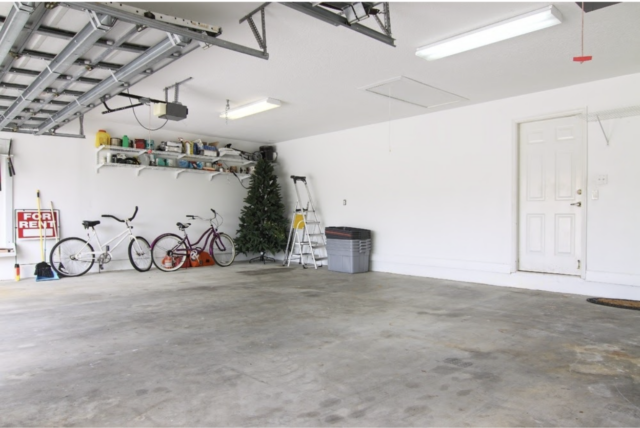
Many people assume that the garage is a safe place to store flooring materials, but that could be a costly mistake. Pre-installation flooring materials are not impervious to damage. In fact, they might be more vulnerable pre-installation than they are post-installation.
If you store them in an unstable environment, like your garage, they could get damaged or ruined, costing you tons of money in the process.
Here are some of the various challenges you might face if you store your flooring materials in your garage:
Unregulated Temperature
Flooring materials expand and shrink based on their location. Laminate tiles and vinyl planks are no different. Their size and shape will change based on the temperature and humidity of their environment.
There’s no centralized air conditioning or heating in most garages, so the temperature fluctuates throughout the day and night. Many factors affect this constant fluctuation, including the weather, insulation, vehicles, and fixtures that are present in the garage.
If your flooring materials are in an environment that is constantly changing temperature, it can affect how the materials acclimate. As a result, you will need to re-acclimate them to the area of your home where they’re going to be installed.
In worst-case scenarios, if your garage gets too hot, this can have a devastating impact on your flooring materials. They can melt, discolor, or become distorted as the heat penetrates the various layers of the vinyl planks and laminate tiles. Do not store them in high temperatures.
Moisture
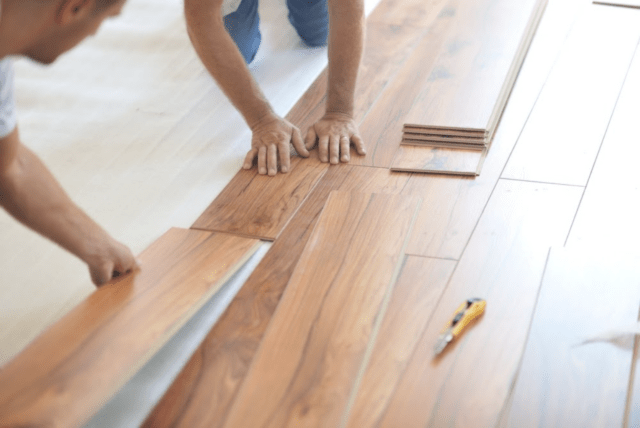
Moisture and humidity can be extremely dangerous for your floors. If you’re thinking about storing your flooring materials in your garage, this should be one of your primary concerns. How humid is your garage, and is there excess moisture?
Laminate and vinyl planks have protective layers that make them moisture-resistant and highly durable, but those only protect the materials after they’re installed. Before installation, the internal layers of the flooring are highly vulnerable.
If moisture gets inside your tiles or planks, it can cause them to swell and warp, and they’ll be uneven and virtually unusable when you try to install them. The bottom line? Water, humidity, and excess moisture often found in garages, due to their proximity to the outdoors, can damage or destroy your flooring materials.
Dust, Debris, and Pollution
Water isn’t the only thing that can damage vinyl and laminate. A garage is often an environment for harsh chemicals, car fumes, dust, and debris. It’s also a place where critters and insects might hide. Unfortunately, they might think your flooring materials are their next tasty meal or restroom spot.
Since garages are located so close to the outside, with doors that are opened and closed regularly, they are at risk for many potential hazards. When you purchase your new laminate or vinyl flooring, be cautious about where you store it.
Can Laminate Flooring Be Stored in a Garage?
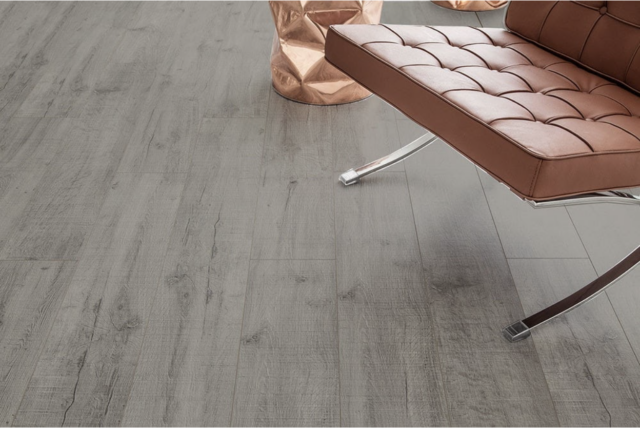
The answer is yes. Unless you live in an area with regularly high humidity levels, you can store laminate flooring in your garage. However, if you choose to store your flooring materials in the garage, you need to do everything you can to keep the materials safe from moisture and other potential risks..
You should keep it wrapped in whatever packaging it came in. Try to minimize how often you open and close your garage doors. If you see bugs or critters, try to get rid of them or handle them appropriately.
If you see that the weather is concerning, either with high temperatures or heavy rain or snow, you might consider moving the flooring to a safer place.
Can Vinyl Flooring Be Stored in a Garage?
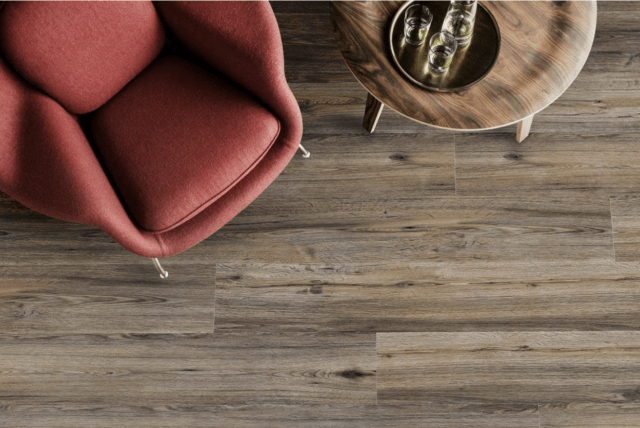
The answer to this question is also yes. Just like with laminate, unless you live in an area with regularly high humidity, you can store your vinyl flooring in your garage. Just be cautious about the challenges mentioned above.
Don’t let the flooring get wet. Don’t let the temperatures get too out of control, and if you have any problems with chemicals, fumes, critters, or insects, you might consider moving your flooring materials somewhere else.
You don’t want to accidentally damage your flooring before you get it installed. If you can, try to minimize how long you store the materials before you start the acclimation and installation process.
The Importance of Acclimation Before Installation
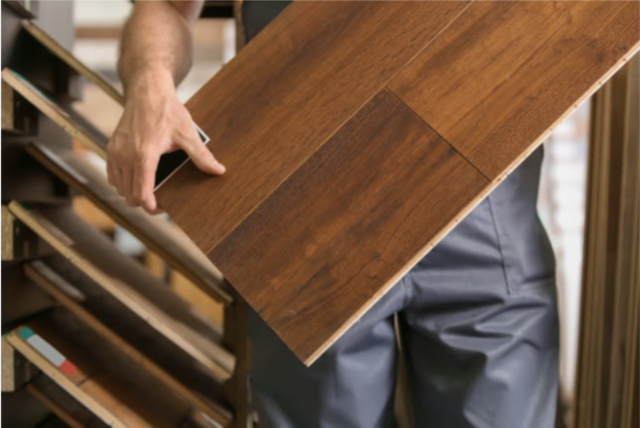
You must acclimate flooring materials to the temperature and climate of the specific room where they will be installed before beginning the installation. All flooring materials expand or contract based on the temperature and humidity of their environment. You need to ensure that your flooring materials are properly adjusted to their new environment before you install them.
The amount of time this takes differs between flooring types. For vinyl plank flooring and laminate flooring, you should allow the flooring materials to acclimate for at least 48 hours prior to installation.
Find the Best Synthetic Flooring Materials with BuildDirect
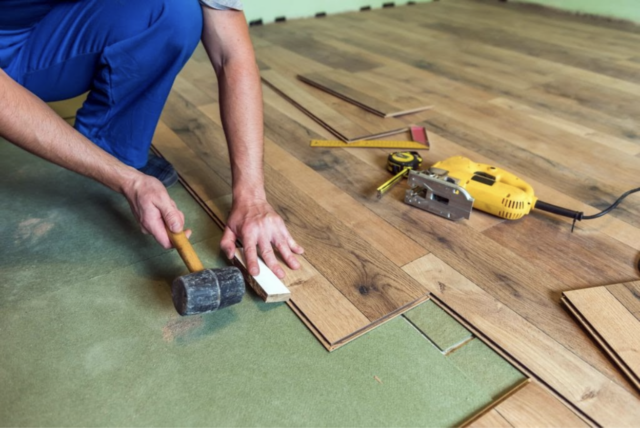
If you’re looking for the best synthetic flooring materials on the market, you should partner with BuildDirect. Our flooring products are handpicked by industry experts and competitively priced to match any budget.
Plus, if you become a PRO Rewards member, you get instant access to exclusive deals, unlimited samples, on-site deliveries, a 5% credit, and more. Become a PRO today!










